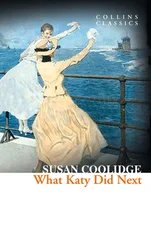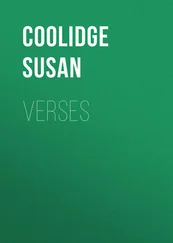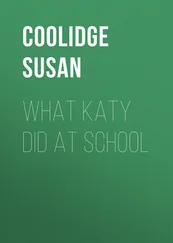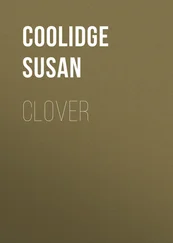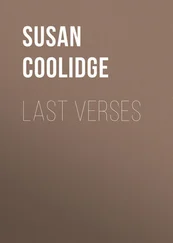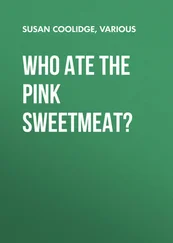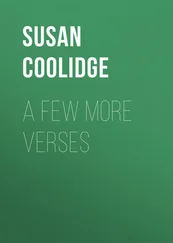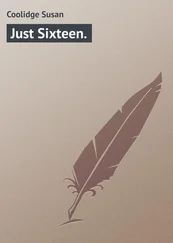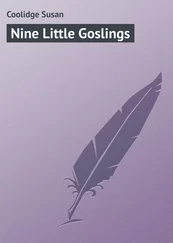Susan Coolidge - A Round Dozen
Здесь есть возможность читать онлайн «Susan Coolidge - A Round Dozen» — ознакомительный отрывок электронной книги совершенно бесплатно, а после прочтения отрывка купить полную версию. В некоторых случаях можно слушать аудио, скачать через торрент в формате fb2 и присутствует краткое содержание. Жанр: foreign_prose, на английском языке. Описание произведения, (предисловие) а так же отзывы посетителей доступны на портале библиотеки ЛибКат.
- Название:A Round Dozen
- Автор:
- Жанр:
- Год:неизвестен
- ISBN:нет данных
- Рейтинг книги:4 / 5. Голосов: 1
-
Избранное:Добавить в избранное
- Отзывы:
-
Ваша оценка:
- 80
- 1
- 2
- 3
- 4
- 5
A Round Dozen: краткое содержание, описание и аннотация
Предлагаем к чтению аннотацию, описание, краткое содержание или предисловие (зависит от того, что написал сам автор книги «A Round Dozen»). Если вы не нашли необходимую информацию о книге — напишите в комментариях, мы постараемся отыскать её.
A Round Dozen — читать онлайн ознакомительный отрывок
Ниже представлен текст книги, разбитый по страницам. Система сохранения места последней прочитанной страницы, позволяет с удобством читать онлайн бесплатно книгу «A Round Dozen», без необходимости каждый раз заново искать на чём Вы остановились. Поставьте закладку, и сможете в любой момент перейти на страницу, на которой закончили чтение.
Интервал:
Закладка:
It did look forlorn downstairs in the bare little kitchen. Mrs. Simmons's chill was coming on. She was up and dragging herself about, but she looked quite unfit to be out of bed. Two little children, a boy and a girl, whom Helen had not seen the night before, clung close to her dress, and followed wherever she moved, hiding their shy faces from the strangers. They got over their shyness gradually as Helen laughed, and coaxed them, and by the time breakfast was over had grown good friends.
"Now," said Helen, gayly, after a last glance at the window, which showed the snow-storm still raging, "I am going to propose a plan. You shall go to bed, Mrs. Simmons, – I'm sure you ought to be there at this moment, – and Glory and I will wash the dishes, and we will cook the Thanksgiving dinner."
"Oh, dear! there ain't nothing worth cooking," sighed poor Mrs. Simmons, but she was too ill to make objections. So Glory, or Glorvina, put the kitchen to rights with Helen's help, and then the two girls sat down to consult over dinner.
"Could you roast a turkey, do you think?" asked Helen.
"There ain't no turkey to be roasted," objected Glory.
"Yes, but could you if there were? Because I think there's one in the hamper, papa, and I know grandmamma would let us have it if she knew."
"Why, of course she would. Use everything in the hamper if you like; grandma would never think of objecting, and there's plenty more to be had where those came from," said her father.
So the hamper was unpacked, and the turkey extracted, and a package of tea and another of lump sugar, and a tumbler of currant jelly; and Helen filled a big dish with oranges and white grapes, and the preparations went merrily on. There proved to be half a squash in the cellar, and Glory, wading out in the snow, fetched in a couple more eggs from the barn, so pies were possible. Helen produced her recipe-book.
"Now I'm going to show you just how to make pies," she said; "I only learned myself day before yesterday." And she thought, "How lucky it is that I did learn, for now I can show Glory, and she'll always know. But wouldn't Morrison open her eyes if she could see me?"
The spices and lemons came out of the hamper, of course, and the crust had to be made of salt butter and no lard; but the pies turned out very good, for all that, and no one was in the least disposed to find fault with their flavor. Really, the little dinner was a great success. Glory's potatoes were a little underdone, but that was the only failure. The children ate as though they could never be satisfied. Mr. Simmons cheered up and cracked one or two feeble jokes; and even Mrs. Simmons, propped high in bed to survey the festive scene, called out that it "looked something like," and she didn't know when there had been so much laughing going on in their house before.
The clock struck three just as the last nicely washed plate was set away on the dresser. Helen quite jumped at the sound. How short, after all, the day had seemed which promised to be so long and dismal! And just then a bright yellow ray streamed through the window, and, looking out, she saw blue sky.
"Papa," she screamed, "it has cleared up! I do believe we shall get to grandmamma's to-night, after all!"
And so they did. Mr. Sands, with Mr. Simmons's assistance, fitted the rockaway on to a pair of old sledge-runners, and, with many warm good-byes from the whole family, they drove off. Just at sunset they reached Morrow Hill, and grandma was so glad to see them, and they so glad to get there, that it was easy to forget all their disappointment and delay. In fact, after a little while Helen convinced herself that the whole thing was rather a piece of good fortune than otherwise.
"For, don't you see, papa," she exclaimed, "we had all Thanksgiving evening with grandmother, you know, and she had it with us, so we only lost part of our pleasant time? But if it hadn't been for the snow and the breakdown, the poor Simmonses wouldn't have had any Thanksgiving at all – not a bit; so it really was a great deal better, don't you see that it was, papa?"
AT FIESOLE
FIESOLE is a quaint old town which perches on a hill-top above the valley of the Arno and the city of Florence. You must not pronounce it as it is spelt, but like this – Fee-es-o-lee. From the Florence streets people catch glimpses of its bell-towers and roofs shining above the olive orchards and vineyards of the hillside. A white road winds upward toward it in long, easy zigzags, and seems to say, "Come with me and I will show you something pretty."
Not long ago there were two girls in Florence to whom, plainly as road could speak, the white road seemed to utter these very words. Pauline and Molly Hale were the names of these girls. It was six months since they had left America with their father and mother, and it seemed much longer, because so much had happened in the time. First, the sea voyage, not pleasant, and yet not exactly unpleasant, because papa got better all the way, and that made mamma happy. Now papa would be quite well at once, they thought. His people (for papa was a clergyman) had sent him away for that purpose. They were not a rich people, but each gave a little, and all together it made enough to carry the pastor and his family across the sea and keep them there one year, with very prudent management. The Hales, therefore, did not travel about as most people do, but went straight to Italy, where they hoped to find that sun and warm air which are an invalid's best medicines.
"Going straight to Italy" means, however, a great many pleasant things by the way. Molly was always reminding Maria Matilda, her doll, of the sights she had seen and the superior advantages she enjoyed over the dolls at home.
After this mention of a doll, what will you say when I tell you that Molly was almost thirteen? Most girls of thirteen scorn to play with dolls, but Molly was not of their number. She was childish for her years, and possessed a faithful little heart, which clung to Maria Matilda as to an old friend whom it would be unkind to lay aside.
"First, there was Paris," Molly would say to her. "No, first there was Deep , where the people all talked so queerly that we couldn't understand a word. That was funny, Matilda, wasn't it? Then, don't you recollect that beautiful church which we saw when we went past Ruin? " (Molly meant Rouen, but I am sorry to say her pronunciation of French names was rather queer.) "And Paris too, where I took you to walk in the gardens, and papa let us both ride in a whirligig. None of the home dollies have ever ridden in whirligigs, have they? They won't understand what you mean unless I draw them a picture on my slate. Then we got into the cars, and went and went till we came to that great dark tunnel. Weren't we frightened? And you cried, Matilda – I heard you. You needn't look so ashamed, though, for it was horrid. But we got out of it at last, though I thought we never should; and here we are at the padrona's, and it's ever so nice, only I wish papa would come back."
For Florence had proved too cold, and papa had joined a party and gone off to Egypt, leaving mamma and the children to live quietly and cheaply at Signora Goldi's boarding-house. It was a dingy house in the old part of Florence, but for all that it was a very interesting place to live in. The street in which the house stood was extremely narrow. High buildings on either side shut out the sun, the cobblestone pavement was always dirty, but all day long a stream of people poured through it wearing all sorts of curious clothes, talking all sorts of languages, and selling all sorts of things. Men with orange-baskets on their heads strolled along, crying, "Oranges, sweet oranges!" Others, with panniers of flowers, chanted, "Fiori, belli fiori!" Pedlers displayed their wares or waved gay stuffs; boys held up candied fruits, wood-carvings, and toys; women went to and fro bearing trays full of a chocolate-colored mixture dotted with the white kernels of pine-cones. This looked very rich and nice, and the poor people bought great slices of it. Pauline once invested a penny therein, but a single taste proved enough; it was sour and oily at once, and she gave the rest to a small Italian girl, who looked delighted, and gobbled it up in huge mouthfuls. Whenever they went out to walk, there were fresh pleasures. The narrow street led directly to a shining sunlit river, which streamed through the heart of the city like a silver ribbon. Beautiful bridges spanned this river, some reared on graceful arches, some with statues at either end, one set all along its course by quaint stalls filled with gold and silver filigree, chains of amber, and turquoises blue as the sky. All over the city were delightful pictures, churches, and gardens, open and free to all who chose to come. Every day mamma and the children went somewhere and saw something, and, in spite of papa's absence, the winter was a happy one.
Читать дальшеИнтервал:
Закладка:
Похожие книги на «A Round Dozen»
Представляем Вашему вниманию похожие книги на «A Round Dozen» списком для выбора. Мы отобрали схожую по названию и смыслу литературу в надежде предоставить читателям больше вариантов отыскать новые, интересные, ещё непрочитанные произведения.
Обсуждение, отзывы о книге «A Round Dozen» и просто собственные мнения читателей. Оставьте ваши комментарии, напишите, что Вы думаете о произведении, его смысле или главных героях. Укажите что конкретно понравилось, а что нет, и почему Вы так считаете.


